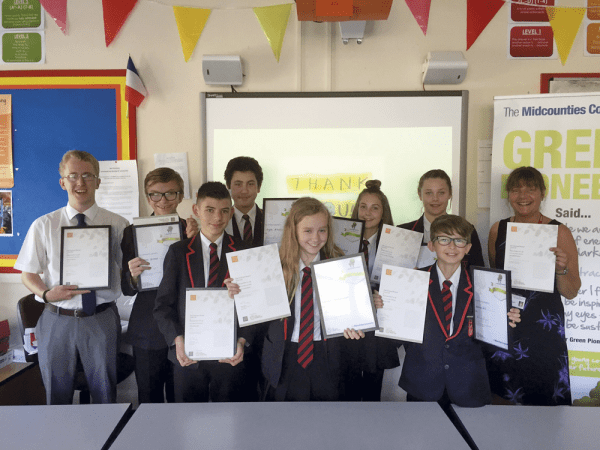To mark World Environment Day (5 June) some UK co-op retailers highlighted how they are making a difference by tackling plastic waste.
The Co-op Group published a statement in which it explained what it was doing to encourage customers to recycle more. The retailer says it is also working with local authorities and waste management companies to make recycling easier for consumers.
Earlier in 2018 the mutual asked its members to join in its #TheCoopWay campaign by suggesting practical things we can try to reduce waste and improve recycling. The initiative resulted in 800 ideas submitted by members, some of which were chosen for pilot projects. Members attending the group’s AGM in Manchester also voted to make 100% of its packaging “easy to recycle”.
It’s more important than ever to work together on reducing plastic waste. Read more we’re reducing plastic waste #TheCoopWay #WorldEnvironmentDay ♻️ ⬇️https://t.co/GheRocYL7C
— Co-op (@coopuk) June 5, 2018
Changes recently made by the Co-op Group include switching all Co-op branded water bottles to 50% recycled plastic, developing Co-op Fairtrade 99 Blend Tea without polypropylene, replaced polystyrene with corrugated cardboard pizza discs, switching its black sushi boxes to clear plastic and black card, changing from black to widely recycled blue plastic for mushroom packaging and moved from plastic to card packaging for tomatoes and oranges. In addition, the Co-op is trialling a plastic bottle deposit & return scheme at festivals.
“Only half a million of the 1.5 million tonnes of recyclable plastic waste created every year in the UK is being reused. It’s shocking that such a small percentage of plastic packaging is being recycled, especially materials that are already easy to recycle like plastic bottles,” said the Co-op Group’s environment manager, Iain Ferguson.
“We believe part of the problem lies with a lack of knowledge about which packaging can be recycled along with local authorities lacking the facilities to deal with it. We’re working hard to engage local authorities and waste management companies to make recycling easier.”

Another co-op retailer, the Midcounties Co-operative, has been teaching local schools about plastics and how small changes can have a big impact on the environment as part of its Sustainable Communities Programme.
The scheme was initially launched in 2017, aiming to educate the next generation around sustainability, renewable energy, and social responsibility. In collaboration with schools, colleges and universities in the area, the business is linking sessions to the curriculum. Its employees volunteer to go to schools to talk about sustainability, Fairtrade or local products. The co-op also runs a Green Pioneers programme in partnership with the Outward Bound Trust, enabling teenagers to take part in outdoor activities as well as develop a sustainable project in their own school.
As part of our Sustainable Communities Programme this #WorldEnvironmentDay, we’ll be educating local schools about plastics and how making small changes could have a big impact. #sustainability #gogreen pic.twitter.com/iryotk2K3Z
— Midcounties Co-op (@midcountiescoop) June 5, 2018
Beating plastic pollution was the key theme adopted by the International Labour Organization (ILO) for the day.
As principle-driven, member-owned, and community-rooted enterprises, #coops have proven records of promoting environmental sustainability, including efforts to #BeatPlasticPollution. We put some examples on the occasion of #WorldEnvironmentDay pic.twitter.com/dxTszflmOu
— Coops and Employment (@Coopsemploy) June 5, 2018
The UN body highlights that plastic is now found in all aspects of modern life, with over 32% of packaging escaping collection systems. The ILO suggests transforming the “make-use-dispose” plastics’ economy into a circular one based on recycling.
The approach would not only be beneficial for the environment, but also create new jobs. According to the World Employment and Social Outlook: Greening with Jobs 2018 report, a sustained 5% annual increase in recycling rates for plastics, glass, wood pulp, metals and minerals can generate around 6 million additional jobs across the world.
The ILO also points out that waste pickers in countries like Brazil and Bangladesh have used co-operative models as an alternative to operating in the informal economy, often on low wages and no social security.